Do you feel freezing cold after you run? Are you shivering on the finish line? Maybe you’re ok but then an hour later the cold feeling kicks in?
You are not alone! This is definitely me – I am all of the above. Pretty much every time I run. I ran the Manchester Marathon and knew I would have to wait a bit for my friend, followed by a couple of hours train journey home. It wasn’t a cold day but I took ski gear, hat, scarf, gloves and a flask of tea in my kit bag. I used it all! I knew I’d need it and I was so glad of it.
But why does it happen? Why does running make you feel cold afterwards? And what can you do to prevent the post-run shivers?
Thermoregulation
As I’ve mentioned lots of times in previous blogs, the body likes homeostasis. A state where everything is in perfect balance and it can operate optimally. A constant core, or internal body temperature is an important part of body homeostasis and is crucial for our body organs to function well.
The hypothalamus is the part of our brain that regulates body temperature and keeps it as close as possible to 37˚C. If our temperature drops, the hypothalamus triggers mechanisms which generate heat. Conversely, if we’re getting hot, it finds ways to lower body temperature. This is called thermoregulation. Of course, our environment is always changing and as well as what’s going on internally, the body has to adjust to outside temperature too.
Running and body temperature
Running affects our body temperature. We all know when we run that we quickly warm up. Our working muscles generate a lot of heat and before long our body is trying to cool us down. It does this in two main ways:
- Sweating. Glands in your skin produce sweat. This sits on your skin and as it evaporates away it takes heat with it. Being a heavy sweater is just a sign that your body is efficiently losing heat.
- Vasodilatation. Blood loses heat when it travels close to the skin. When you’re hot, the body opens up (dilates) the blood vessels at the surface. This brings more blood flow closer to the skin where heat is lost. Hello bright red face!
When you are active, your working muscles are generating internal body heat and you need these cooling mechanisms to prevent your core from over-heating. When you stop exercising, your body temperature falls. You begin to feel cold. The hypothalamus needs to adjust again to maintain homeostasis. It has to hold onto and create heat rather than keep trying to shed it. It does this by:
- Reducing sweating. The amount you produce rapidly reduces when you stop running.
- Vasoconstriction. Blood vessels are narrowed down again to direct more blood flow internally, away from the surface of the skin to reduce heat loss and maintain core temperature.
- Shivering. Heat is generated by muscle action, quick shivering of muscles will produce heat and raise body temperature
- Cold sensation. Feeling cold is an intentionally unpleasant sensation. It drives us to go in search of clothes to put on and other ways to warm up.
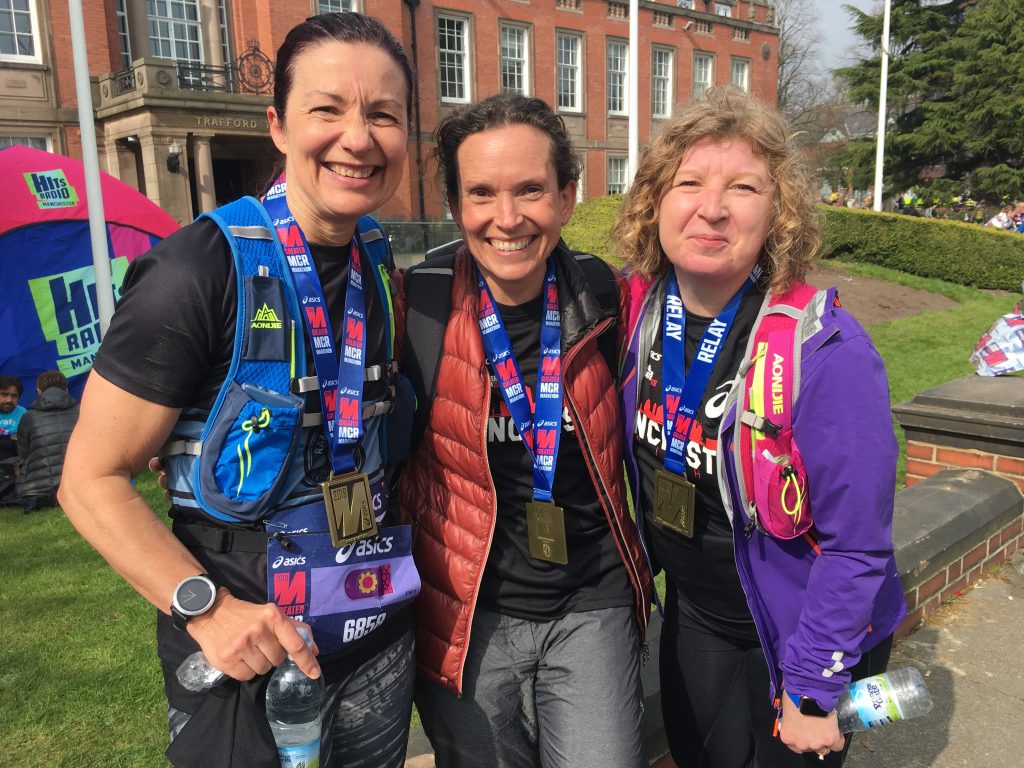
Ways to stop feeling cold after a run
While you might not be able to eliminate it completely, there are a few things you can do to minimise how freezing cold you feel after a run.
- Cool down well. Don’t stop running abruptly. This is hard after a long run or hard race when all you want to do is lie down on the floor. Reducing your exercise gradually will help your body to transition from running to resting more easily. A cool down jog or brisk walk is all that’s needed. At the very least, just keep moving for a few minutes after you stop.
- Remove wet clothes. The layer of sweat on your skin will still be cooling you down, even after you’ve stopped so pack a towel in your kit bag to dry yourself. Sweat-soaked clothes will do the same so take these off as soon as possible. A word to the women reading this – this includes your sports bra which if it’s anything like mine will need to be peeled off. Put on a completely new set of dry clothes – this makes a huge difference and is far better than just putting layers on top of wet clothes. At the very least, change your t-shirt. Shiny silver space blankets that are given out at lots of races will help to retain heat so use these while you find your kit bag.
- Go somewhere warm. Whether it’s back home, into a heated car or a village hall on race day, being in a warm environment will obviously stop you getting cold. If you’re someone who struggles with this, avoid lingering for ages chatting to friends and competitors and prioritise getting warm first.
- Have a shower. This isn’t aways possible if you aren’t heading straight home but if you do have a journey ahead of you, it’s worth seeing if there’s somewhere you can get a hot shower. This will wash off remains sweat and warm you up too.
- Get a hot drink. A warm drink will heat you from the inside out as well as topping up your hydration levels. I’ve started packing a thermos mug of tea or hot chocolate in my kit bag or leaving it in the car. There’s the added bonus that a warm cup will heat up cold hands. Warm food, as soon as you can stomach it, is a good idea too.
We’re all different
I imagine some people are reading this and not identifying with it at all. This isn’t a big issue for some runners. Just pulling on a sweatshirt after running is enough. But, if you’re like me and really struggle with feeling cold after running then I hope it’s helpful. I can still feel cold a couple of hours after running if I don’t take steps to warm up. We all have different thermostats and lose and generate different amounts of heat. It’s just one of the ways our incredible body works to keep us functioning. Learning about the ‘why’ is a great way to figure out how you can help yourself and make running even more enjoyable for you.
There are other tips like these, including how to help a runner who is over heating, in my new book Run Well: Essential health questions and answers for runners. Published by Bloomsbury and available to buy now.
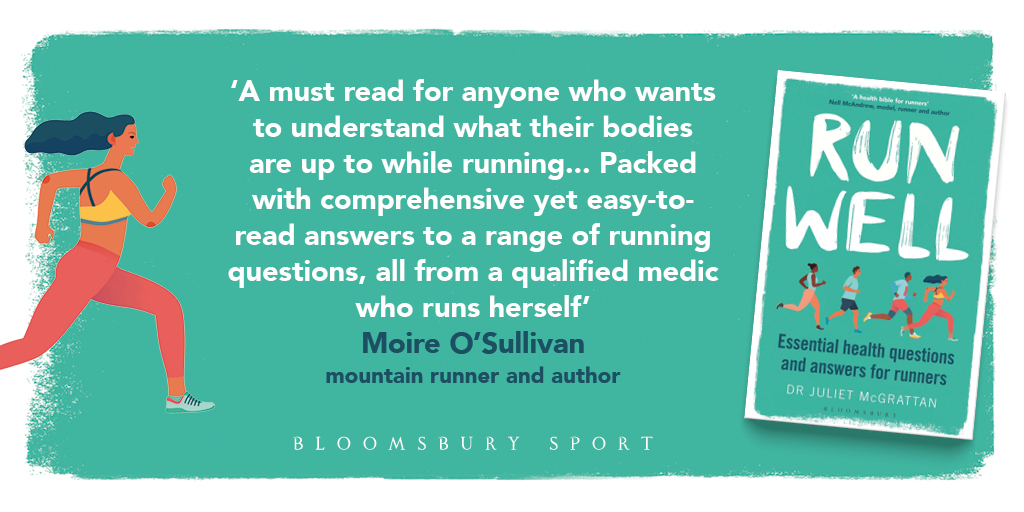
Featured Image: Oleksandr Pyrohov from Pixabay
Other image: drjulietmcgrattan.com

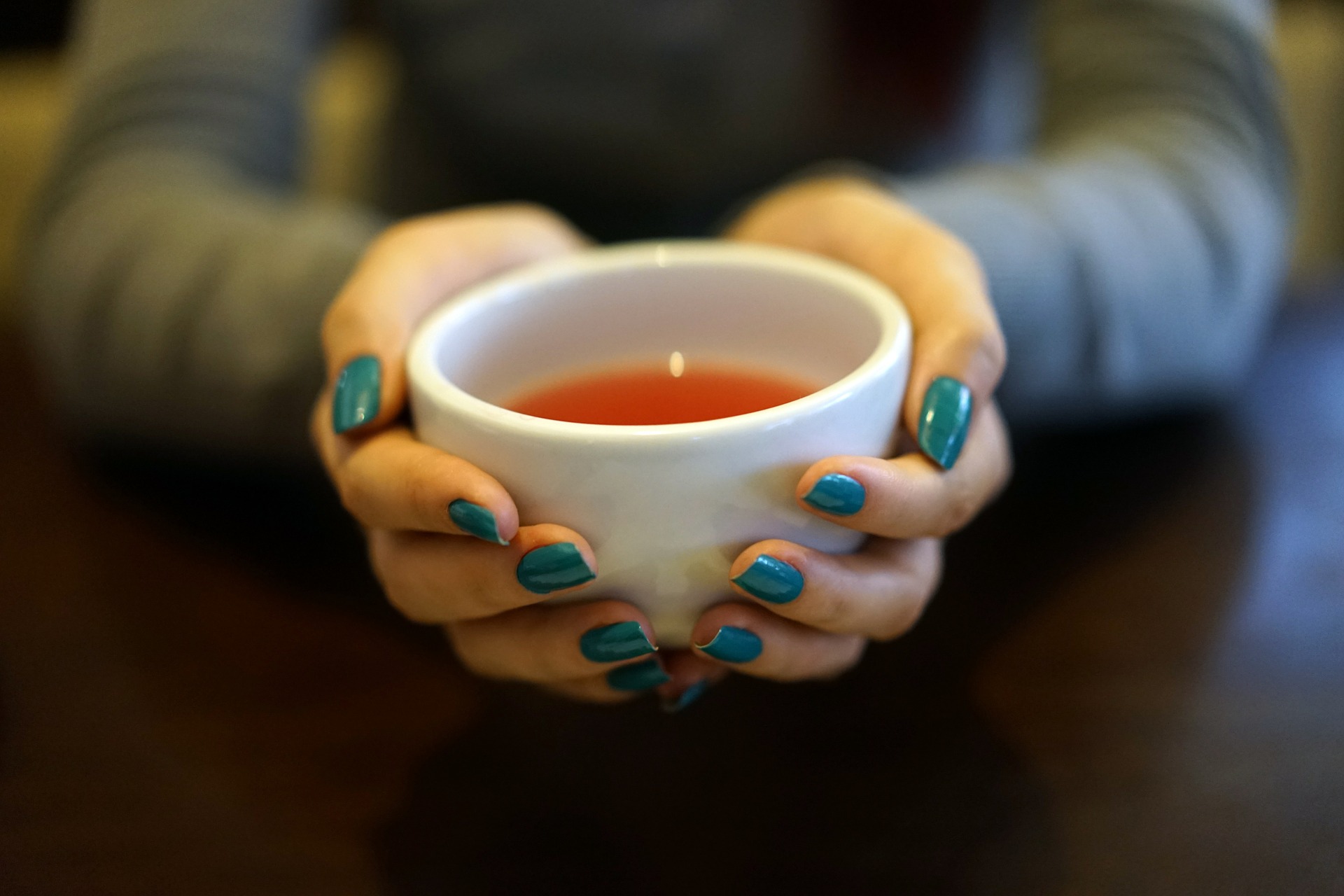
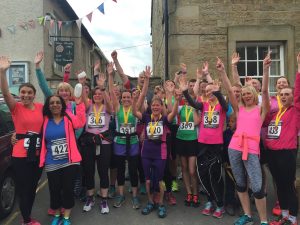
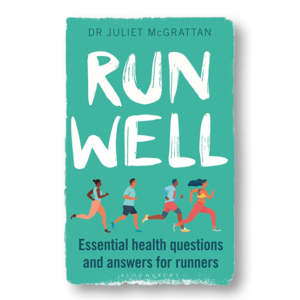
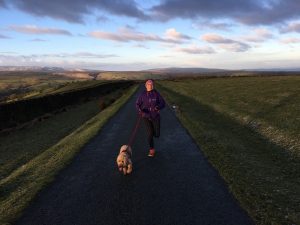
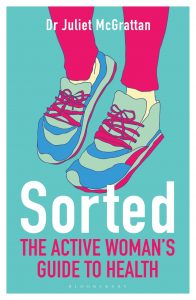
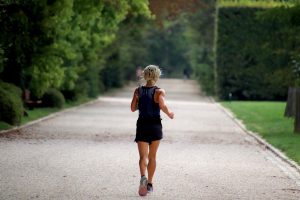
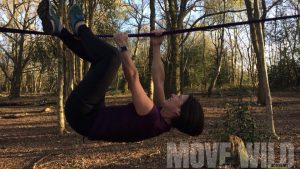
Thank you!! I am training for my first half marathon and I’m running further than I ever have. As my runs have gotten longer I’ve really been struggling with being cold for several hours after – even though I’m running in 60 degree weather.
Yes, the longer I go the colder I get afterwards. Best of luck with your half Dani!
I struggle with this big time, and it usually starts about 30 minutes after a run. I run every weekday morning starting at 3 AM and ending at around 4:30. I will go home and take a shower and get into dry clothes, but without fail a short time later, particularly if I go back to bed, I will have this tingling sensation that travels up my body, and then afterward I start to freeze and am pretty miserable I’m so cold. I will try to cool down more gradually and see if that helps.
I’m in awe that you run at 3am! I’ve never run at that time but if I have had to get up at that time I’m generally cold and shivery. I know our circadian rhythm slows our metabolism and keeps our body cooler at night so I wonder if that’s playing a role too? Not an evidenced based reply – just me thinking out loud! Thanks for reading and commenting Phillip